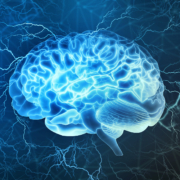What is neuropsychology?
Neuropsychology is a branch of psychology that studies, assesses, and treats brain functioning.
More specifically, neuropsychologists are trained to understand how the central nervous system is related to behavior, emotions, and everyday abilities.
Neuropsychologists are doctoral level professionals who have a background in neuroanatomy, brain diseases, and conditions. They also have training in mental health conditions and the study of the mind and how it affects behavior.
Clinical neuropsychologists treat a wide number of conditions in children and adults, and are helpful in the diagnosis of Alzheimer’s disease, traumatic brain injury and concussion, epilepsy, Parkinson’s Disease, Multiple Sclerosis, brain tumors, infections, and genetic conditions, how drugs effect brain functioning, and learning disabilities.
A person typically is referred to a neuropsychologist if their cognitive abilities need to be assessed and/or when a profile of their cognitive strengths and weaknesses is needed. In such cases, neuropsychologists typically work together with neurologists, primary care providers, psychiatrists, and neurosurgeons as part of a comprehensive medical team.
When neuropsychologists assess a patient, they use specialized tools to evaluate memory and attention, as well as visuospatial, language, and motor skills, and complex thinking abilities. To accomplish this assessment, a clinical neuropsychologist reviews a thorough medical history and a comprehensive developmental, work and educational background. The neuropsychologist also uses standardized tests to measure a person’s brain function.
Upon conclusion of an evaluation, the neuropsychologist may meet with the patient and their family as well as the referring physician to review the results.









